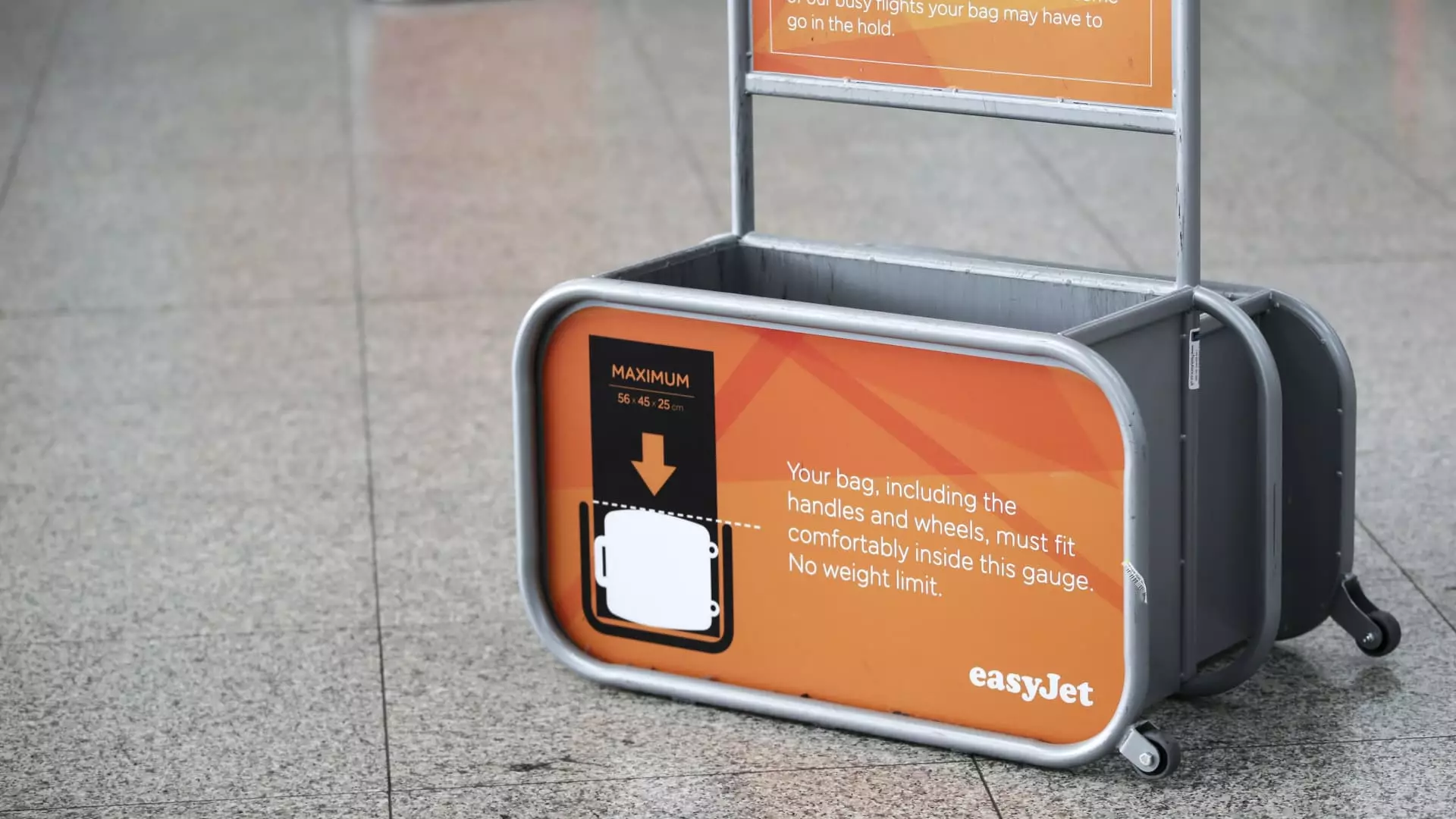EasyJet recently reported impressive financial results, with £3.59 billion (approximately $4.5 billion) accrued from ancillary revenues over the full year ending in October. This figure highlights a significant trend in the airline industry. Budget carriers are increasingly relying on ancillary services—such as extra luggage fees, priority boarding, and meal selections—to enhance their profitability. EasyJet’s CEO, Johan Lundgren, has been vocal in defending this strategy, especially in light of the regulatory scrutiny the airline faces, specifically in Spain.
Over the past decade, airlines have shifted their focus from all-inclusive ticket pricing to a more unbundled model, primarily due to intensified competition in the low-cost segment. Stripped-down base fares have become a hallmark of the industry, enticing consumers with attractive initial prices while allowing airlines to monetize additional services.
A significant challenge emerged when Spain’s Ministry of Consumer Rights imposed a fine of €29 million on EasyJet and other low-cost carriers for what it termed “abusive practices.” The ministry’s accusations focused on surcharges for hand luggage and seat selection, which they deemed excessive. EasyJet, along with other affected airlines like Ryanair and Norwegian, has expressed strong opposition to these penalties, arguing that they contravene European law. Lundgren has underscored that the offering of tailored services is beneficial for consumers, allowing each customer to pay only for what they select, thus helping to keep base fares competitive.
This confrontation with regulators emphasizes a pivotal debate in the airline industry about consumer rights versus business strategies. While EasyJet argues that a significant portion of its customer base opts not to purchase additional services, the continued reliance on ancillary revenue raises questions about transparency and fairness in pricing.
Despite the regulatory battles, EasyJet reported a profit before tax of £610 million, marking a 34% increase from the previous year. This growth was driven largely by a resurgence in travel demand as Europe began to emerge from the constraints imposed by the COVID-19 pandemic. Lundgren credits the airline’s robust performance to strong summer travel numbers and a decrease in losses experienced during the preceding winter. However, this optimism stands in contrast to the challenges faced by competitors like Ryanair, which reported an 18% decrease in half-year profits.
The dichotomy in performance between EasyJet and Ryanair illustrates how varied consumer patterns can be in the current marketplace. While EasyJet has benefitted from a reassessment of travel priorities among consumers, which favors holiday experiences, Ryanair has struggled with declining fares and operational hurdles, notably delays from aircraft manufacturer Boeing.
Recent trends indicate that consumers are more focused on travel and leisure, suggesting a promising outlook for airlines that effectively leverage ancillary sales. Lundgren emphasized this behavioral shift, noting that customers are willing to pay for added conveniences, which bodes well for EasyJet’s ongoing strategy. However, the significant backlash from regulators and rising consumer concerns about pricing transparency may necessitate a reevaluation of how ancillary services are marketed and priced in the future.
With increasing scrutiny from various governments and consumer advocacy groups, budget airlines might need to navigate a new terrain that emphasizes not only profitability but also ethical practices. The challenge lies in balancing shareholder interests with consumer expectations—ensuring that while revenue objectives are met, customer trust and satisfaction remain intact.
As EasyJet continues to navigate the complexities of the airline industry, its success will largely depend on how it addresses the regulatory challenges ahead and adapts to an ever-evolving consumer landscape. The airline’s ability to maintain profitability while offering transparency in pricing will be crucial in sustaining its market position as it moves into 2024 and beyond. The outcome of EasyJet’s current challenges may well pave the way for the future strategies of not only budget airlines but the airline industry as a whole. The terrain is shifting, and how EasyJet and its competitors respond could redefine low-cost air travel for years to come.

